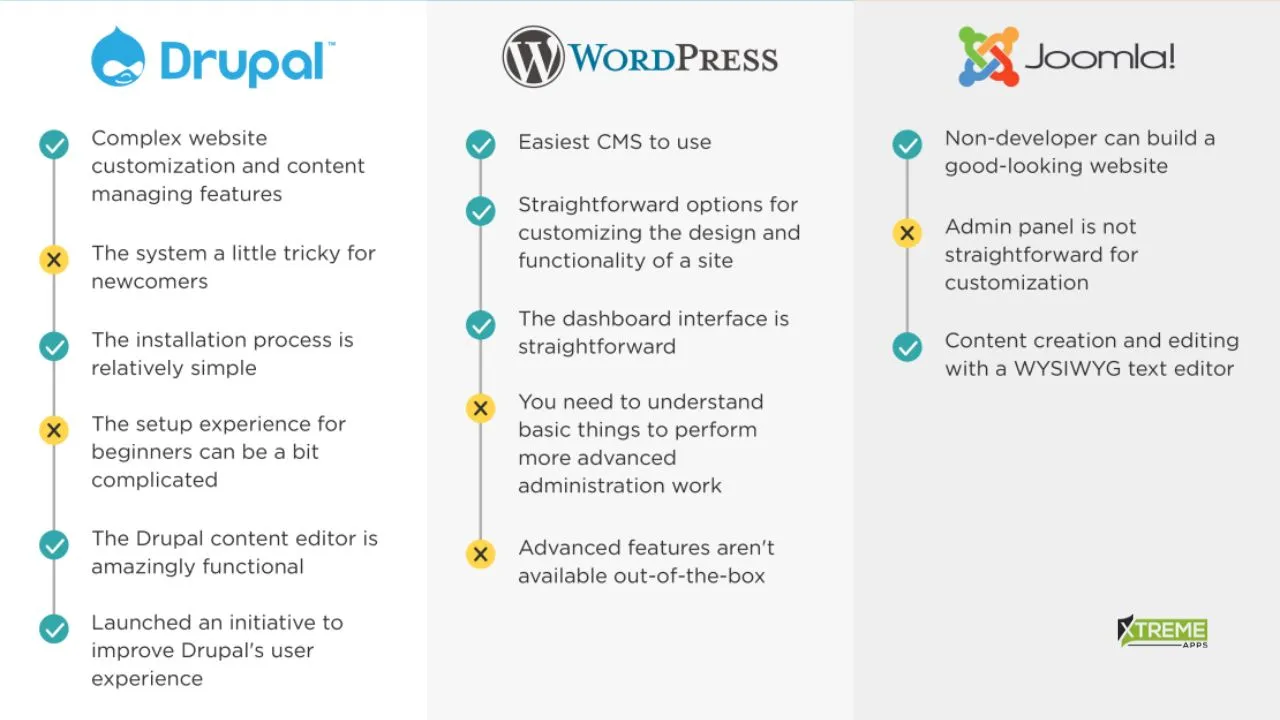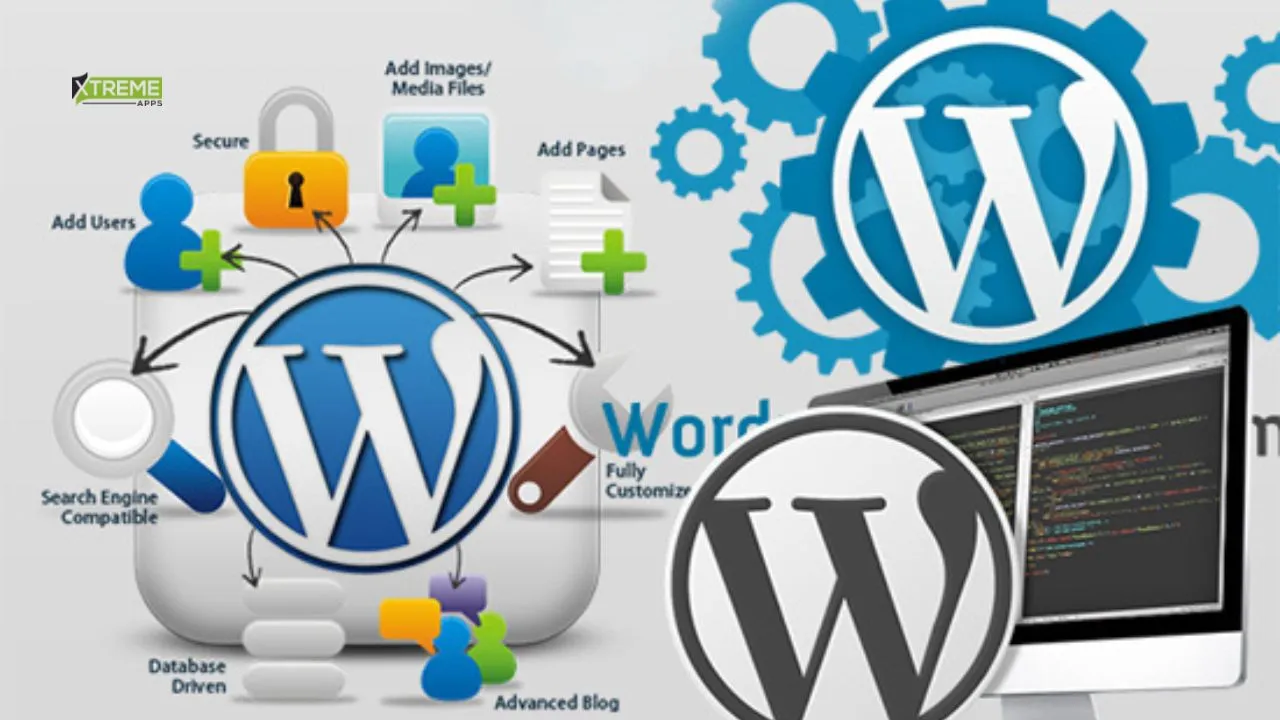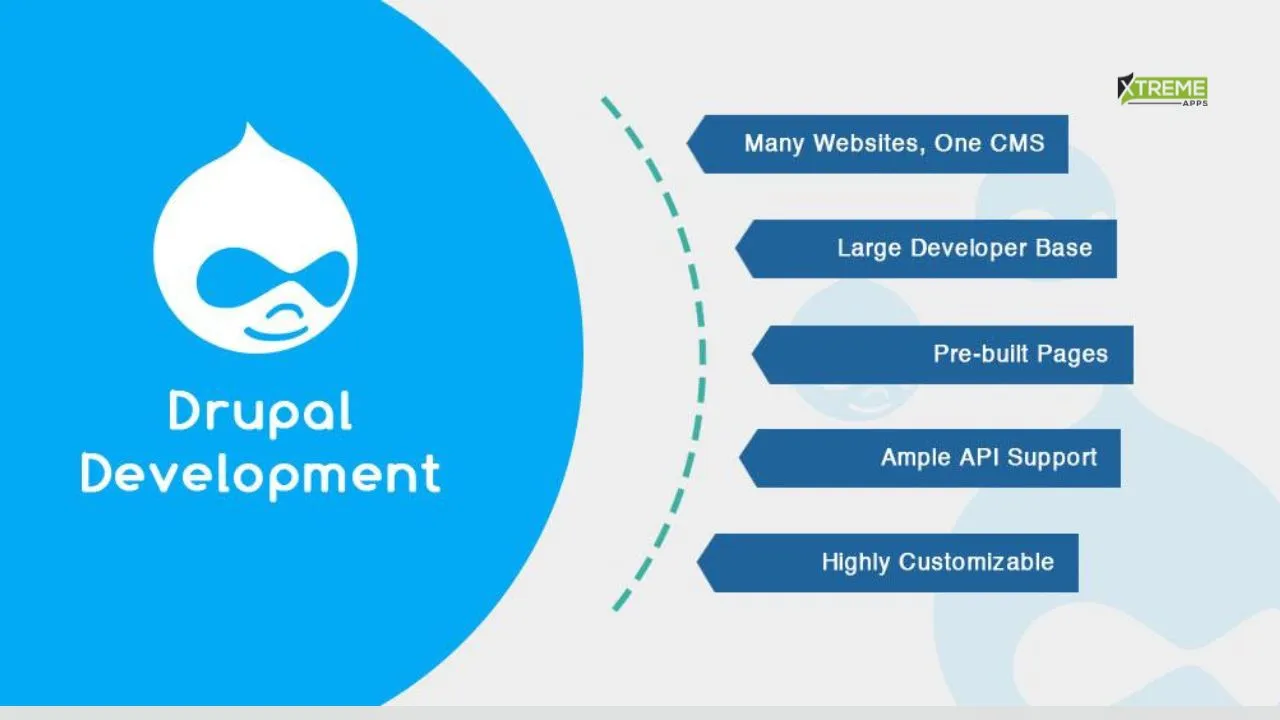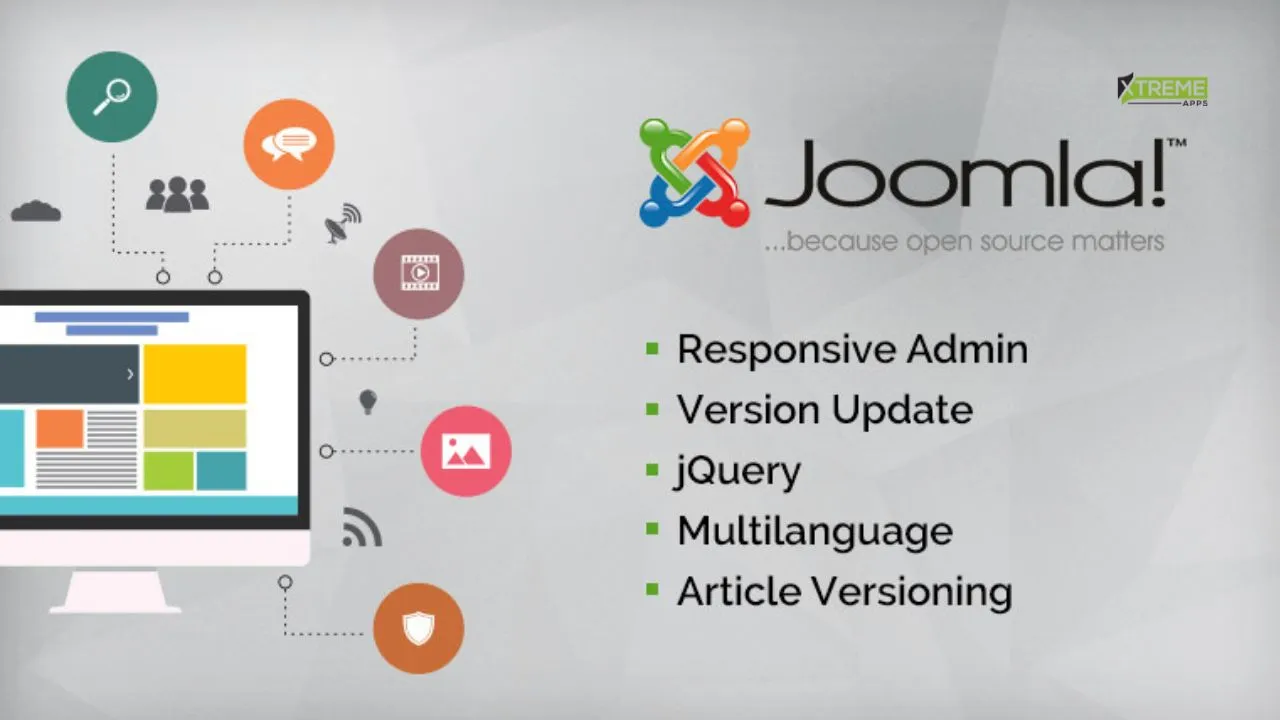WordPress vs. Drupal vs. Joomla

Content Management Systems (CMS) are a critical component of building websites. They provide a framework for managing and organizing website content, making it easier for website owners to create and maintain their sites. WordPress, Drupal, and Joomla are three of the most popular CMS platforms available. In this blog, we will compare the pros and cons of each platform, helping you decide which one is best for your website.
WordPress
WordPress is the most popular CMS platform, powering over 40% of all websites on the internet. It is a free, open-source platform, making it easy for users to download, install, and customize. It is known for its user-friendly interface, making it ideal for beginners and non-technical users.

Pros:
- User-Friendly Interface: WordPress has an intuitive and user-friendly interface, making it easy for anyone to use, regardless of technical skill level.
- Large Community: WordPress has a massive user community, which means there are plenty of resources available for troubleshooting, support, and customization.
- Easy Customization: WordPress has a vast library of plugins and themes, making it easy to customize your website‘s appearance and functionality.
Cons:
- Security Vulnerabilities: WordPress is a popular platform, making it a target for hackers. It is essential to keep WordPress and all plugins up to date to protect against security vulnerabilities.
- Limited Scalability: WordPress is designed for small to medium-sized websites. As your website grows, you may encounter limitations in terms of scalability and performance.
- Overreliance on Plugins: While plugins offer significant customization options, overreliance on them can slow down your website’s performance and cause compatibility issues.
Drupal

Drupal is an open-source CMS platform that is known for its flexibility and scalability. It is a more complex platform than WordPress, making it better suited for developers and technical users.
Pros:
- Scalability: Drupal is highly scalable, making it an ideal choice for large and complex websites.
- Customization: Drupal offers extensive customization options, making it easy to tailor your website to your specific needs.
- Security: Drupal has a reputation for being one of the most secure CMS platforms available.
Cons:
- Steep Learning Curve: Drupal has a steep learning curve, making it more challenging to use for beginners and non-technical users.
- Limited User Community: Drupal has a smaller user community than WordPress, which can make it more difficult to find resources and support.
- Limited Themes and Plugins: Drupal has fewer themes and plugins available than WordPress, which can make it more challenging to customize your website’s appearance and functionality.
Joomla

Joomla is an open-source CMS platform that is known for its ease of use and flexibility. It is a middle ground between WordPress and Drupal in terms of complexity.
Pros:
- Ease of Use: Joomla is easy to use, making it an ideal choice for beginners and non-technical users.
- Flexibility: Joomla is highly flexible, making it easy to customize your website’s appearance and functionality.
- User Community: Joomla has a large user community, making it easy to find resources and support.
Cons:
- Limited Scalability: Joomla is not as scalable as Drupal, making it better suited for small to medium-sized websites.
- Limited Plugins: Joomla has fewer plugins available than WordPress, which can make it more challenging to customize your website’s functionality.
- Template Compatibility Issues: Joomla’s templates are not always compatible with each other, which can cause issues when customizing your website’s appearance.
When selecting a CMS platform, it’s crucial to consider your specific needs, technical expertise, and budget. WordPress is an excellent option for beginners and non-technical users who want an easy-to-use platform with plenty of customization options. It’s also a great choice for smaller websites that don’t require extensive customization or scalability and make a perfect web development.
If you’re building a large and complex website that requires extensive customization and scalability, Drupal may be the better choice. However, it’s important to note that Drupal has a steep learning curve and requires technical expertise to use effectively.
Joomla offers a middle ground between WordPress and Drupal, making it an excellent option for those who want a user-friendly platform with some customization options and scalability.
In summary, all three CMS platforms have their pros and cons, and choosing the right one ultimately depends on your specific needs and goals. Regardless of which platform you choose, it’s essential to keep it updated, secure, and optimized for performance to ensure your website’s success.

